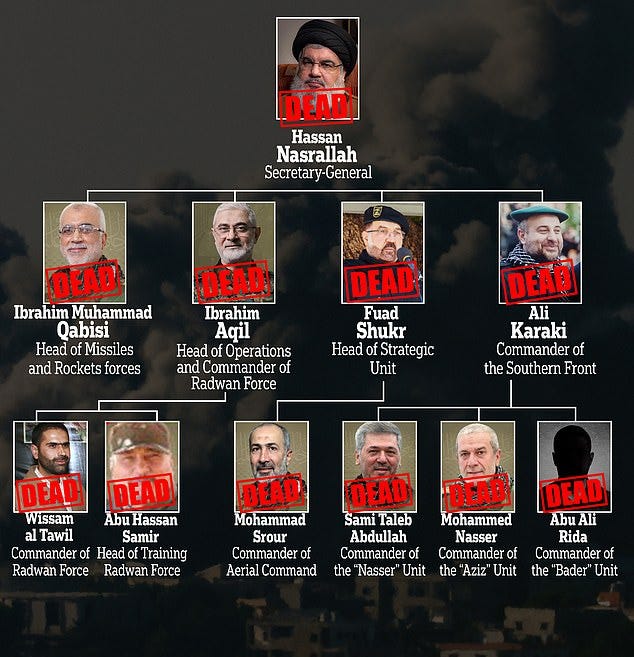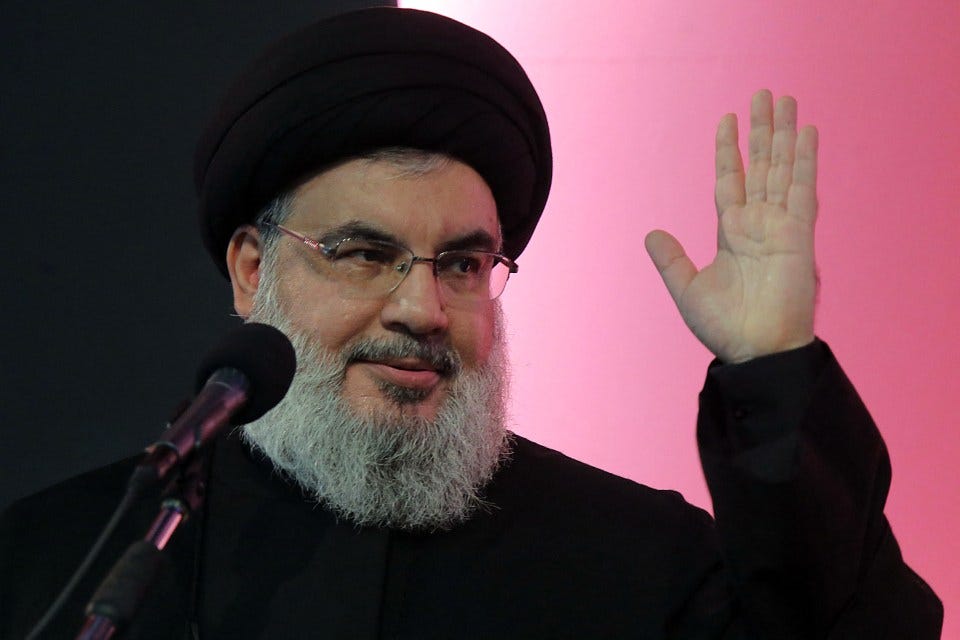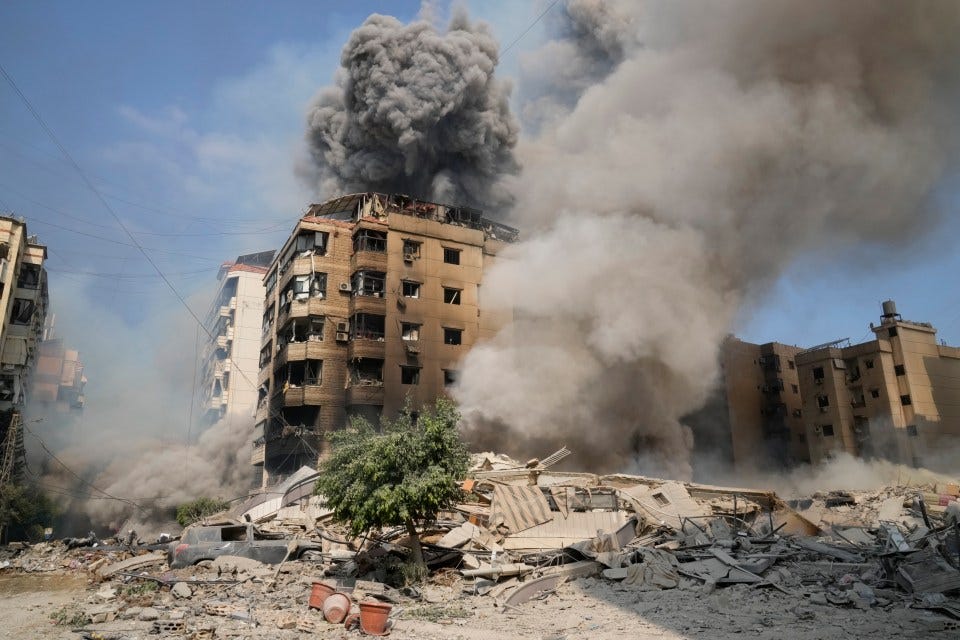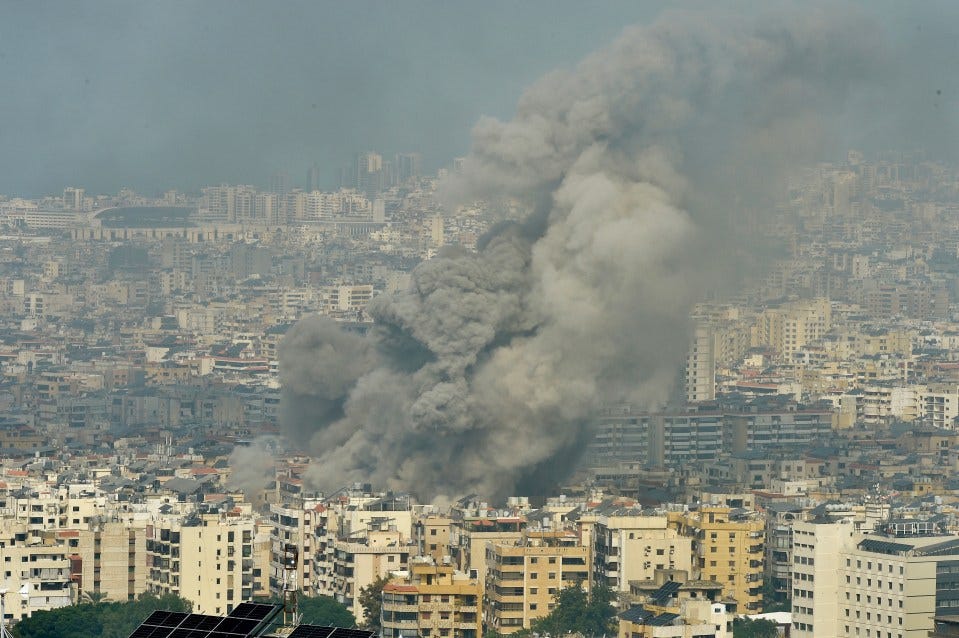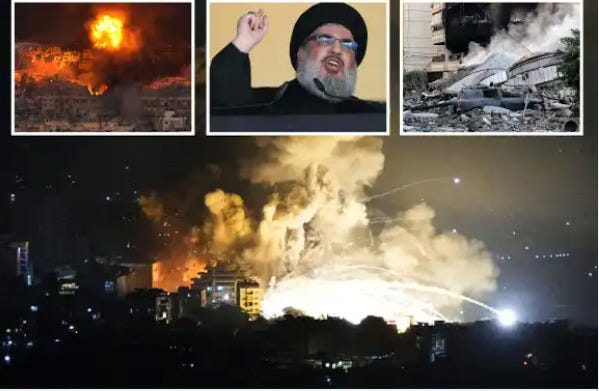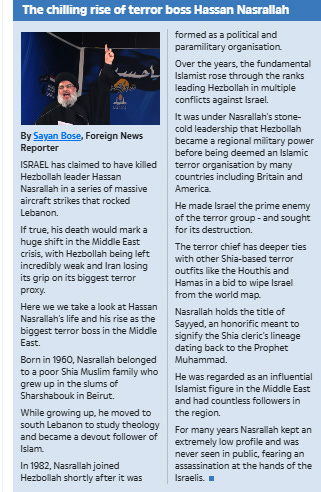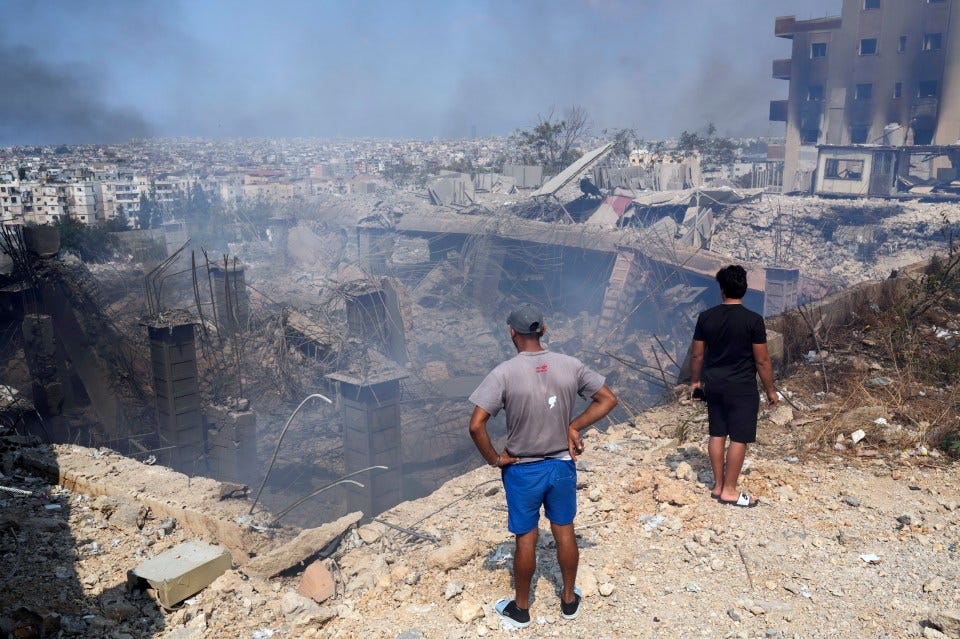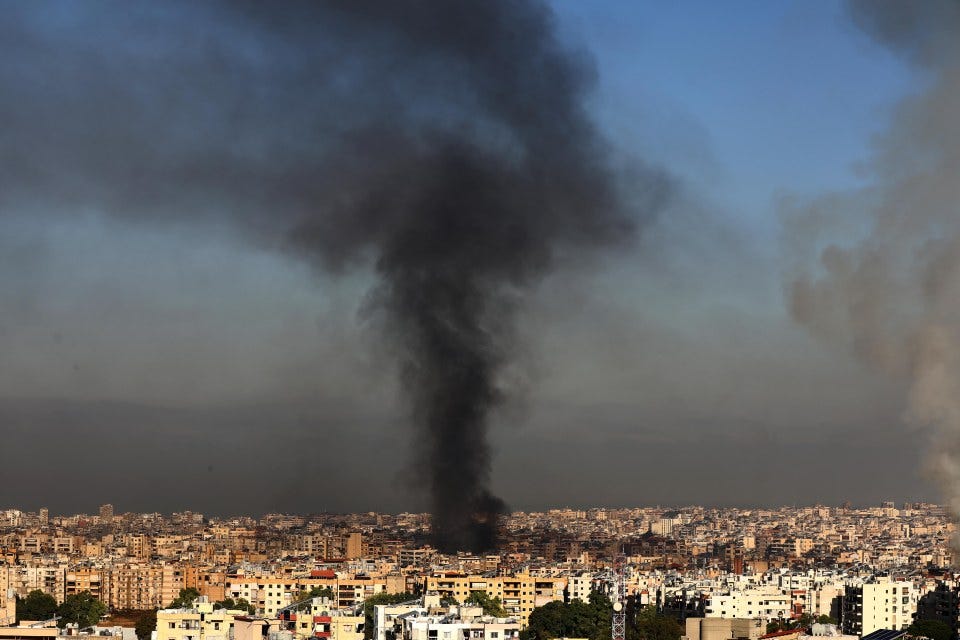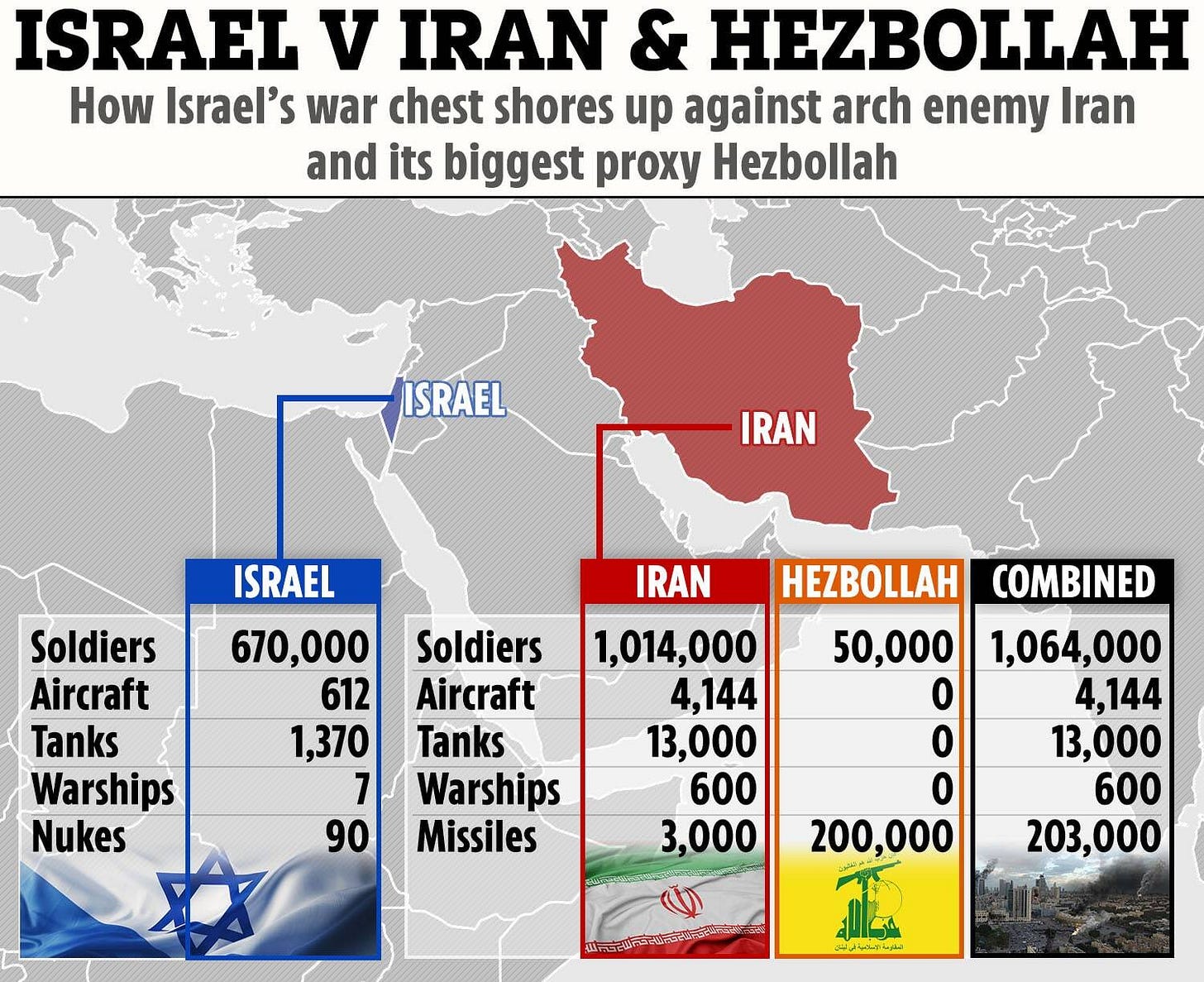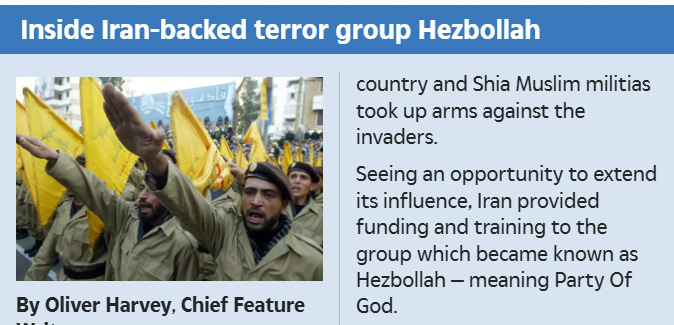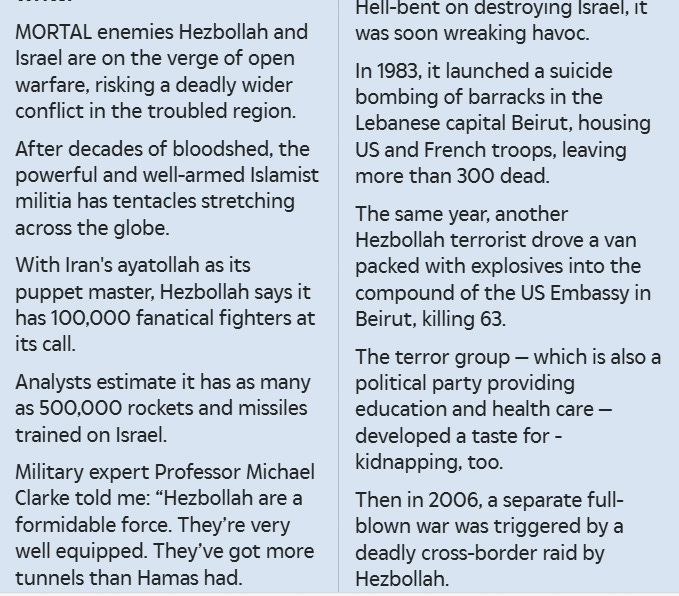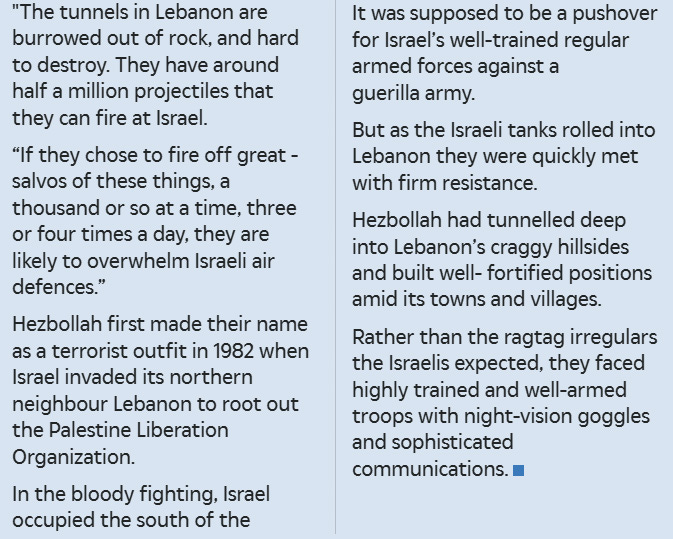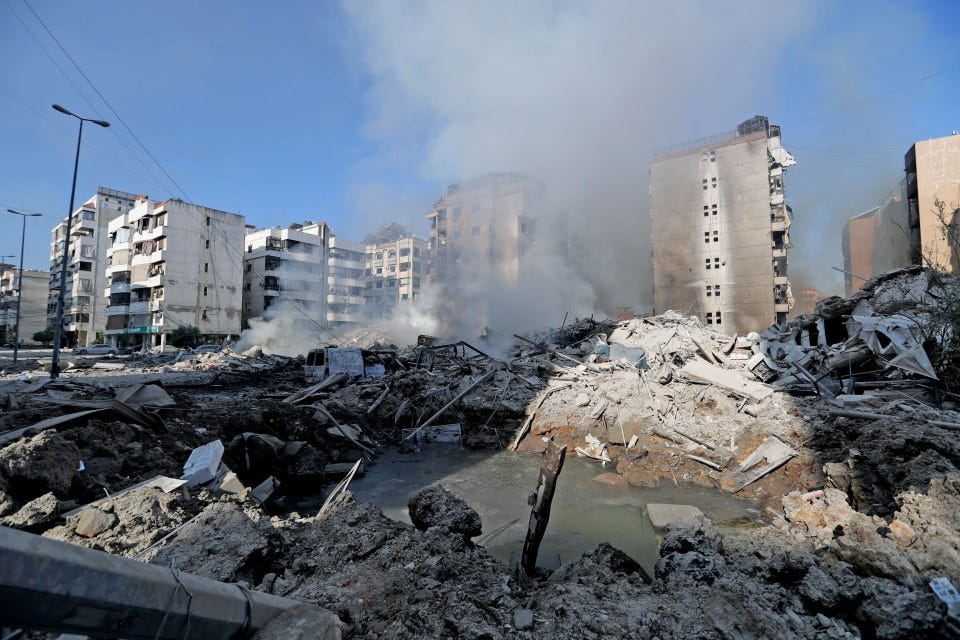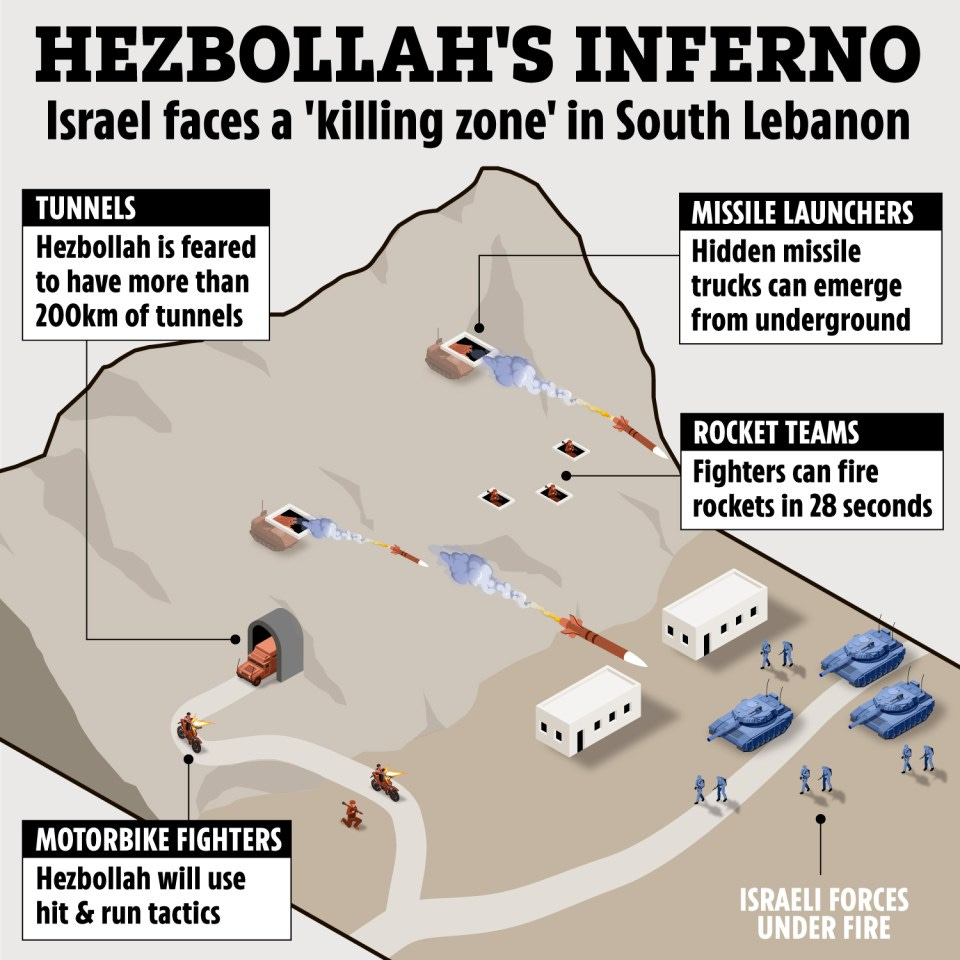DEATH FROM ABOVE How Israel wiped out Hezbollah chiefs one-by-one as ‘assassination’ of terror leader leaves Middle East on a knife-edge
Over the past 11 months, Israel has eliminated nearly all of the terrorist top brass from the ground up
October 2, 2024
ISRAEL has ruthlessly eliminated Hezbollah's chain of command one after the other as the Middle East threatens to explode into chaos.
The biggest blow to the terror group came after a pinpoint airstrike blitz targeted General-Secretary Hassan Nasrallah in his underground bunker on Friday.
Israel claims to have killed Hezbollah leader Hassan Nasrallah in an IDF airstrike. Credit: AFP
Israel has targeted buildings in Lebanon where they believe Hezbollah infrastructure or fighters are hiding out. Credit: AP
Smoke has continued to rise in the southern suburbs of Beirut today. Credit: EPA
Nasrallah, 64, was killed in the deadly missile barrage in Beirut, according to the Israeli Defense Forces (IDF).
Confirmation of Nasrallah's death would mark a pivotal night for Israel after his 32-year reign as boss where he built up the group as a formidable force in the Middle East.
No official statement has been released by Hezbollah as of yet.
The fighter jet blitz also wiped out several other commanders and officials including Ali Karki, the Commander of Hezbollah's Southern Front, the IDF claim.
Read More in Israel
WIPED OUT: Hezbollah terror boss Hassan Nasrallah KILLED in massive missile blitz on chief’s Beirut HQ
Muhammad Ali Ismail, the commander of Hezbollah's missile unit in southern Lebanon, his deputy and "other senior officials" were also taken out.
Israel has wiped out a number of top Hezbollah commanders in airstrikes as they look to continue destroying the para-militant group.
Over the past 11 months, Israel has eliminated nearly all of the terrorist top brass.
Leading many to believe replacing Nasrallah will be a tricky task with a natural predecessor yet to be lined.
The IDF appears to have been tactically hitting Hezbollah chiefs from the ground up in order to prevent them from building back up from a place of stability.
The man potentially poised to take over from Nasrallah was killed at the end of July.
Fuad Shukr, who Israel said was responsible for a deadly rocket attack on Golan Heights that killed 12 children, was assassinated by the IDF on July 30.
Shukr was identified as Nasrallah's right-hand man and was one of Hezbollah's key military officials since the organisation was founded over four decades ago.
The United States sanctioned Shukr in 2015, accusing him of playing a key part in the 1983 bombing of the US Marine barracks in Beirut.
Last Friday, Hezbollah was again plunged into chaos after losing two kingpins and 14 commanders in a fierce strike.
Ibrahim Aqil - a terror master on the US most wanted list for 40 years - was the biggest scalp claimed in the IDF blast on southern Beirut.
Aqil, who had a $7 million bounty on his head, was regarded as the second in command of the Lebanese terror group.
Hezbollah later confirmed Ahmed Wahabi, commander of its elite Radwan Force, had also been killed.
Wahabi was the head of the terror group’s “central training unit,” and was previously top brass in the elite Radwan Force which fought in Syria.
Senior officer Talal Hamiya was named to takeover from Aqil alongside Karaki - the commander who was also eliminated alongside Nasrallah, according to the IDF.
Israel's attacks have followed a pattern of slowly advancing up the chain of command with several men who worked under Karaki being taken out in the months prior.
Taleb Abdullah, the commander of the Nasr regional division, and Muhammad Nasser, the commander of the Aziz regional division were killed in airstrikes in Lebanon, on June 11 and July 3.
The 'death of Hassan Nasrallah'
Israeli PM Benjamin Netanyahu is believed to have personally signed off Friday's attack after learning about Nasrallah's secret hideout.
His spies are said to have discovered the General-Secretary was set to convene a meeting of his surviving leaders at the underground HQ.
Iranian Foreign Minister Abbas Araqchi hit back and accused Israel of using US "bunker buster" bombs in the attack on Beirut.
Huge 4,000lb laser and GPS-guided GBU-28 and 2,000lb Blu-109 bunker buster bombs are believed to have been deployed - burrowing up to 200ft below ground before exploding.
IDF Chief of Staff Lt. Gen. Herzi Halev said "a lot of preparation" was behind the strike.
He said: "It was the right time, [we] did it in a very precise way."
Before warning Israel was set to continue with their targeted assaults across the border.
"This is not the end of our toolbox, we have to be very clear. We have more capacity going forward," Halev added.
Mohanad Hage Ali, deputy research director of the Carnegie Middle East Center in Beirut labelled Nasrallah as a "legendary figure" for many in Lebanon.
He told Reuters how his death would be a huge issue for Hezbollah: "The whole landscape would change big time.
"He has been the glue that has held together an expanding organisation."
Nasrallah led Iran-backed Hezbollah during the last war with Israel in 2006 and has been a thorn in his enemies side ever since.
Citizens look over at a collapsed crater in the ground following an airstrike. Credit: AP
Thousands of homes have been targeted forcing many to flee to safety. Credit: Rex
He oversaw a massive rebuild of the group’s military machine to become the most heavily armed terror group on Earth.
Just days ago he pledged to carry on fighting Israel armed with a terrifying arsenal of 150,000 missiles and drones.
Nasrallah's closest allies over in Iran are also yet to comment on the chiefs condition but did slam Israel for their regime earlier today.
Professor Fawaz Gerges, chair of contemporary Middle Eastern Studies at the London School of Economics, told Sky News: "Benjamin Netanyahu has declared all-out war against the entire axis of resistance – including Iran.
"This is a decade-long war... Hezbollah will bide its time."
Despite this sources close to Israel say his death could halt the conflict from erupting across the Middle East.
The Iran-backed terror group have reportedly been stocking up on their weaponry in preparation for an escalation.
Iran is said to have particularly helped to bolster its arsenal by supplying light weapons, anti-tank missiles and long-range unguided missiles to Hezbollah, report US and regional sources.
A former Hezbollah officer described the south as "boiling," as he claimed “we have everything the Iranians have”, say Ynet News.
Reports also suggest that Hezbollah has been expanding its tunnel network in southern Lebanon to help relocate fighters across the country.
Nasrallah hinted at these preparations last week when he described the coming days as a “historic opportunity” for his men to fight against Israel.
In a chilling declaration, he said: “We’re waiting for their tanks. When they come, they’re welcome."
Inside the terror tunnels, Hezbollah fighters can reportedly move unseen, store weapons, and launch ambushes, creating a dangerous cat-and-mouse game with the IDF.
They can also move into a much larger network of bunkers, missile silos, and command centres, deeply embedded in civilian areas.
These tunnels - which can stretch for miles - link critical positions, allowing Hezbollah fighters to emerge, strike, and then vanish back underground before Israel can respond.
Debris from destroyed buildings piled up in Beirut. Credit: Rex
READ MORE:
Share or comment on this article.
Your support is crucial in exposing fake news and in helping us defeat mass censorship.



